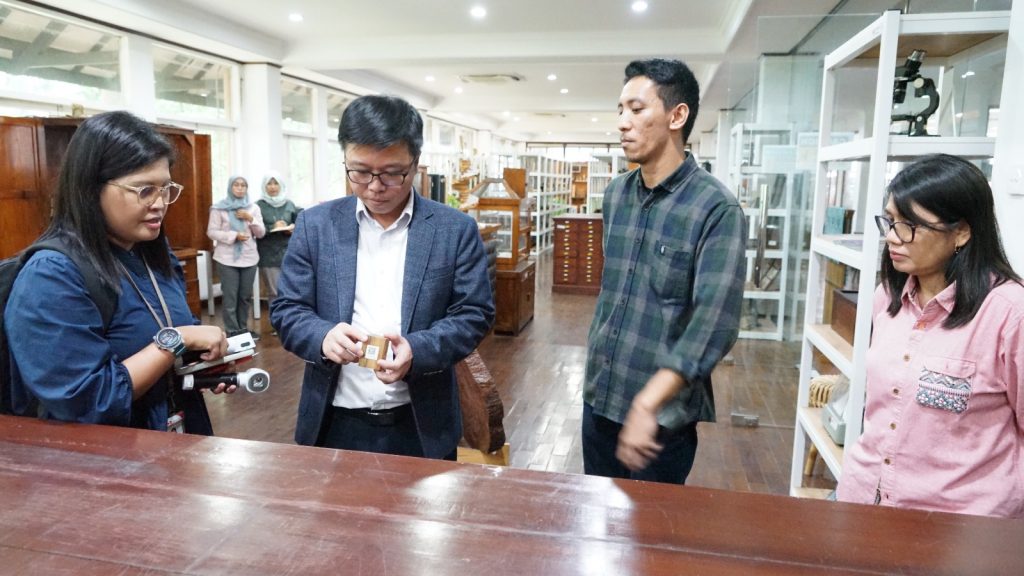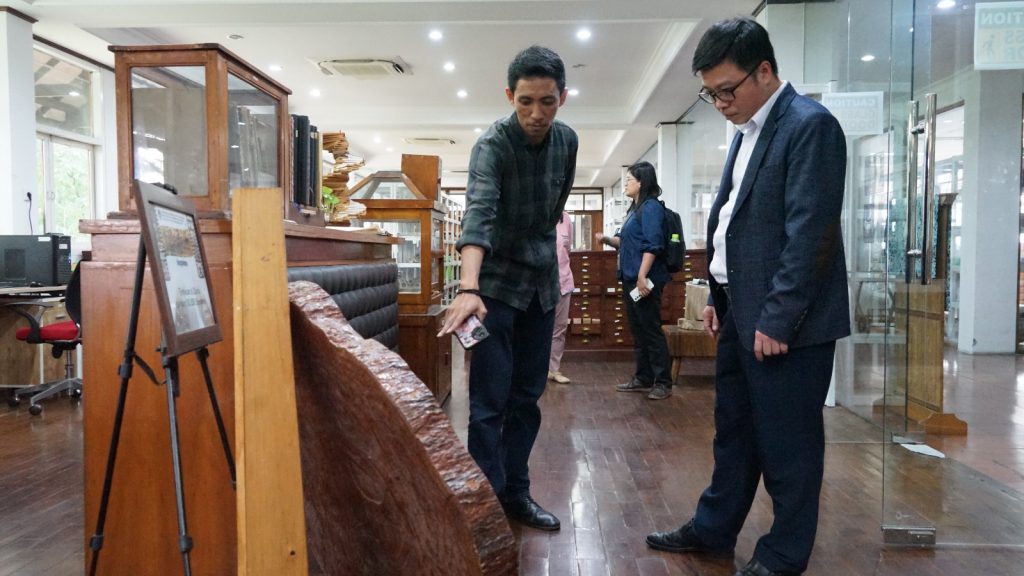Bogor, 6 February 2025 – A delegation from Vietnam recently visited Xylarium Bogoriense, Indonesia’s renowned wood collection, and was profoundly impressed by the extensive range and scientific significance of the specimens on display.

Located within the Center for Sustainable Forest Development, Xylarium Bogoriense houses over 206,000 authenticated wood samples that represent approximately 6,700 species, including more than 100 varieties of bamboo and rattan, as well as ancient wood fossils. Established in 1914, the Xylarium Bogoriense is recognized as the world’s largest xylarium. These specimens encompass approximately 110 plant families and thousands of genera and species, making them a comprehensive resource for research and education.
During their visit, the Vietnamese representatives expressed admiration for the systematic organization and thorough documentation of the collection. “The variety and quality of these wood specimens are exceptional,” commented one member of the delegation. “This collection is invaluable for research on wood anatomy, the identification of forestry species, and sustainable utilization.”
Xylarium Bogoriense plays a vital role in supporting initiatives in forest science and technology. It serves researchers, academics, students, and policymakers for purposes such as anatomical analysis, taxonomy, forensic wood identification, and conservation planning. Additionally, the collection promotes cross-border cooperative research, particularly among ASEAN countries.

This visit highlights Indonesia’s leadership in tropical forestry science and its commitment to sharing knowledge that fosters sustainable forest product development across Southeast Asia. The Center for Sustainable Forest Management Development continues to develop programs that promote research collaboration, capacity building, and innovation in the forestry sector.
As ASEAN nations strengthen their collaboration in sustainable forestry, facilities like Xylarium Bogoriense become essential assets that enhance regional forestry research, education, and innovation.
**Published by:**
Center for Sustainable Forest Development (P2HB) Ministry of Environment and Forestry, Indonesia
